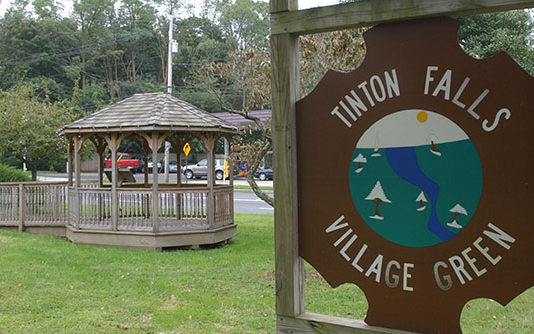Municipal officials in Tinton Falls are seeking a “humane, yet smart” approach to addressing what some residents have called an intrusive feral cat colony near the southern end of town.
Within the past month, residents expressed concern about unknown individuals who are feeding the feral cats. They said the felines defecate and come onto their property. The residents said the food is attracting turkey vultures to that area of the borough.
In an interview on Feb. 6, Councilman Christopher Pak said identifying and implementing an “aggressive” Trap Neuter Release (TNR) program is necessary. He said a TNR program would prevent the number of feral cats from multiplying at a rapid pace.
In a TNR program, individuals trap a feral cat, neuter the animal and place it back in its colony. The purpose of the procedure is to prevent a cat from reproducing and to eventually eliminate the colony in a humane fashion.
Pak said groups of feral cats must be trapped and neutered in order to expedite the process.
“We need to make sure this is effective sooner rather than later,” he said.
Pak previously said a free TNR program was presented to borough officials. He said although Borough Council members “loved the idea,” that program has since been eliminated for reasons the council members are unaware of.
“We certainly want to approach and act on this matter in the right way,” Pak said. “I am studying how different municipalities work with different programs.”
Pak said there are 40 or more feral cats in a colony near the southern end of Tinton Falls.
In the “best case scenario” it would cost about $55 to neuter a feral cat, Pak said, adding he is hopeful officials can negotiate a lower rate with the entity that provides the service.
“If we don’t have the money in our budget (for TNR), we may have caring residents who can help out financially,” the councilman said.
Pak said a “humane, yet smart” approach to addressing the feral cat issue is the goal. He said it would be inhumane to stop feeding cats that are surviving outdoors.
However, he said council members need to be “smart” about how they choose to move forward when looking for an aggressive TNR program. Action could be taken in March, he said.
The issue was a topic of discussion at the council’s Feb. 5 meeting. Some residents voiced frustrations regarding feral cats, while other speakers said they are in favor of feeding the cats.
“There are two sides to this issue,” council President Gary Baldwin said. “There are those who would love to protect the cats forever and there are those who live near or next to these kittens who have a problem with what that brings to the neighborhood.
“I didn’t know cat colonies brought buzzards. This is a big shock to me … Tonight, we are not trying to come up with a permanent solution. We are just fact-finding for us and (residents),” Baldwin said.
Veronica Ehrenspeck, a representative of the Associated Humane Societies, Tinton Falls, said she spoke with a representative of the U.S. Department of Agriculture about the “bigger pressing issue,” the turkey vultures.
Ehrenspeck said there are ways to eliminate turkey vultures. She said she asked a property owner who allows the cats to be fed if he would allow “a fresh (turkey vulture) carcass” to be placed on his property.
“Somehow, (the carcass) will push out the flock of turkey vultures,” Ehrenspeck said, noting that the vultures “don’t usually come back.”
At present, Ehrenspeck said, the turkey vultures have “such a great sense of smell” that they will seek out the food that is being placed out for the feral cats even if they cannot see the food.
Deterrents to help transition the feral cats off residents’ properties is an option, Ehrenspeck said. She said cost-effective and safe alternatives include a sound emitting device humans cannot hear and the use of citrus scents.
“Cats are very smart,” Ehrenspeck said. “When (cats) find something they are opposed to, they stay away from it.”
During the 90-minute discussion about feral cats, council members did not ask members of the public who wished to speak to come forward or to state their name. That led to a situation which saw people voicing their opinions from their seats in the council chambers.
One person who did identify herself was Daun Smith-Graham, who said, “If I wanted cats, I would have cats. It’s not up to me to pay to rectify this situation … I don’t want cats defecating in my yard for my dog to eat and then I have to de-worm my dog every two to four months. Never once were we told there are deterrents, not that we didn’t look for them ourselves. (The deterrents) are something (the homeowners) need to pay for over and over again.”
Council members agreed that residents who do not want to feed feral cats or who want to have them removed from their property should bear the costs associated with either action.

